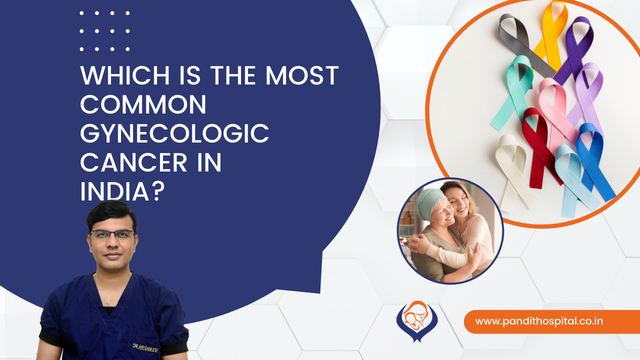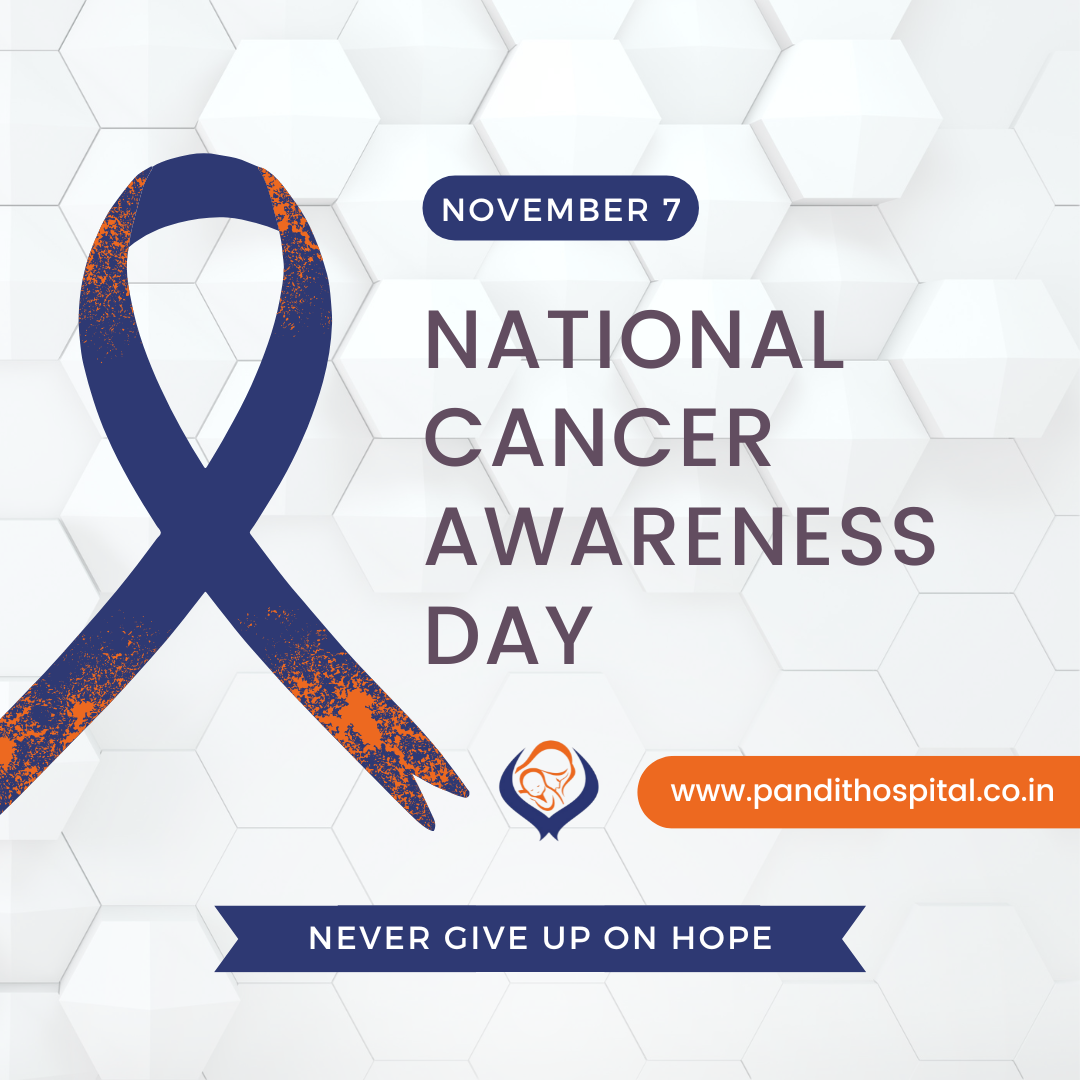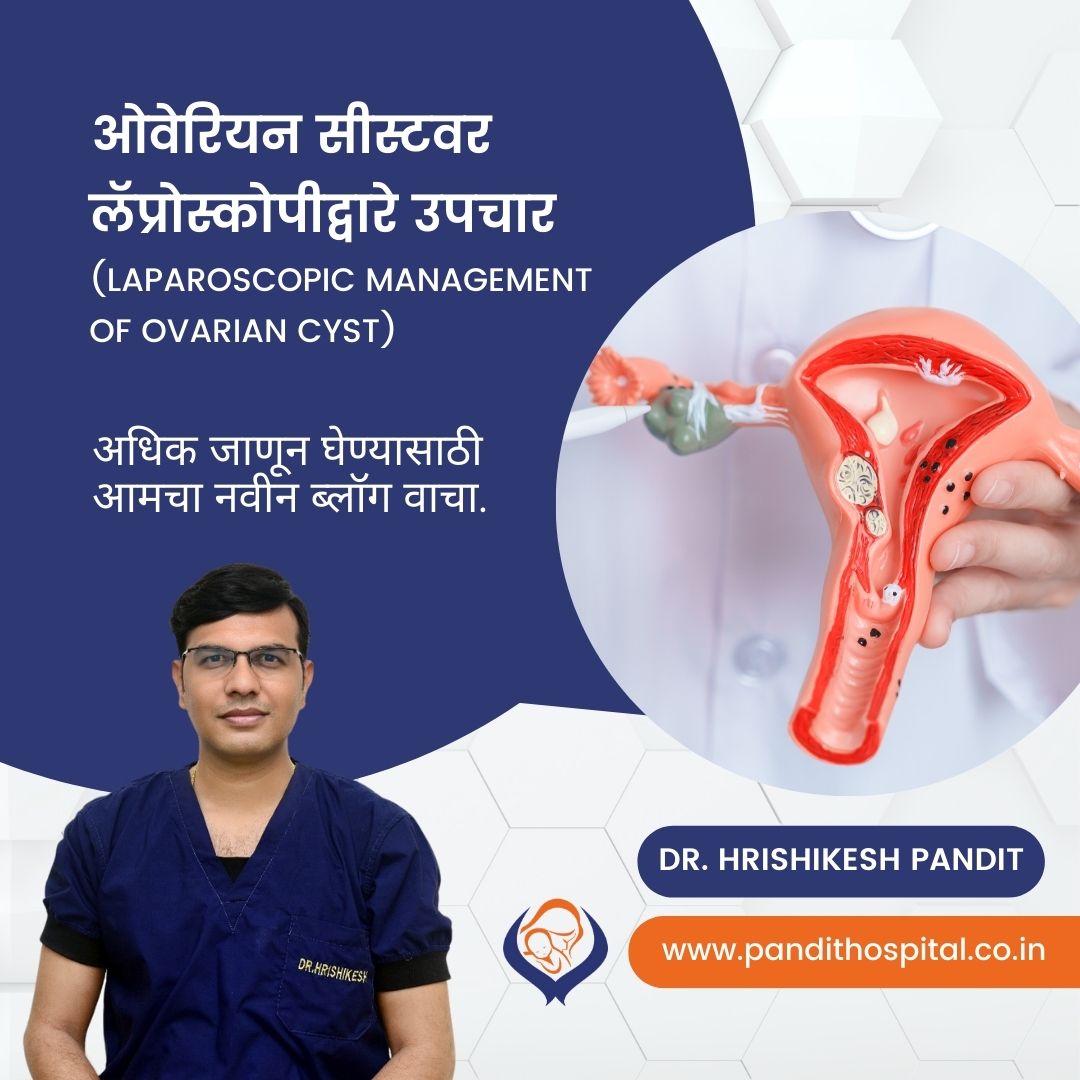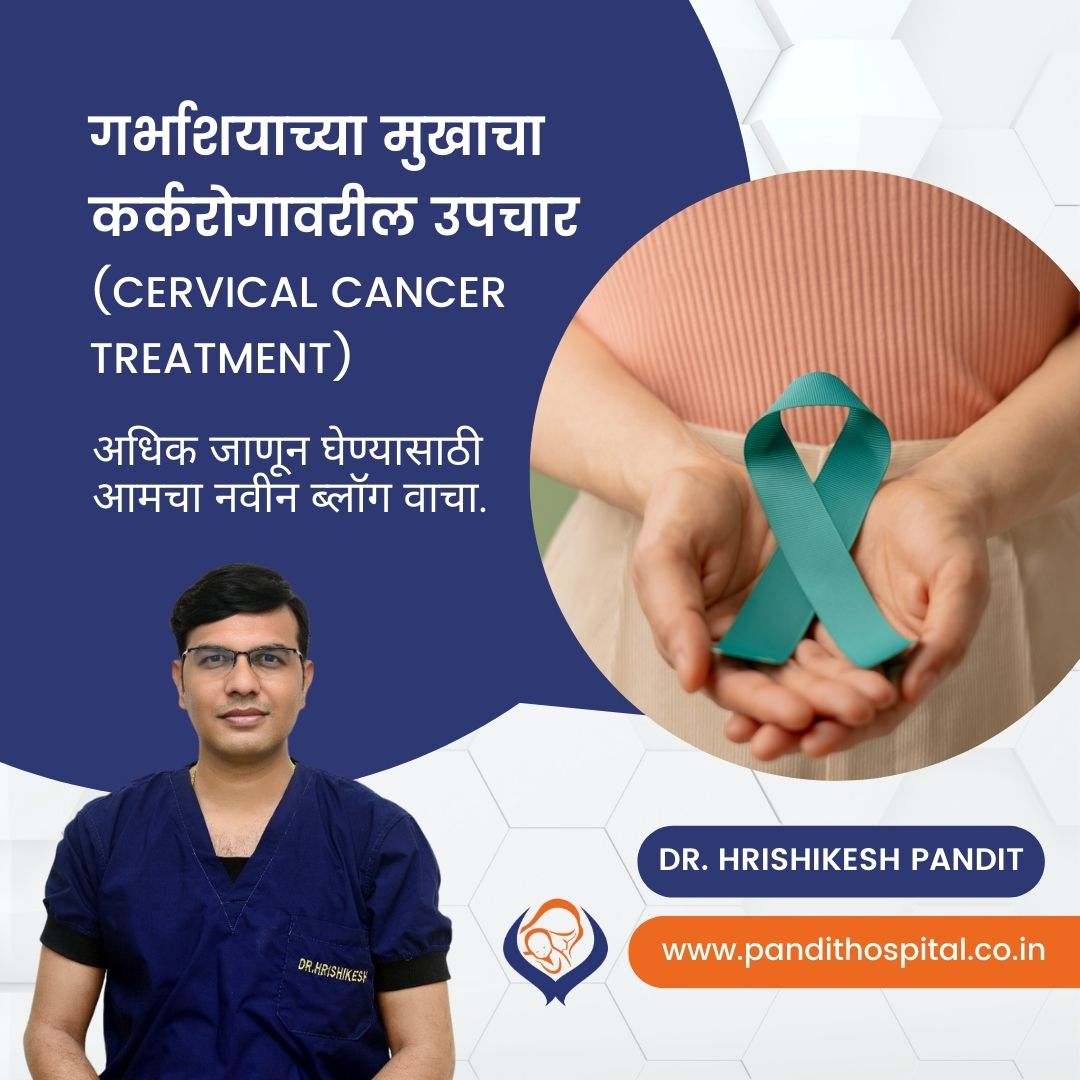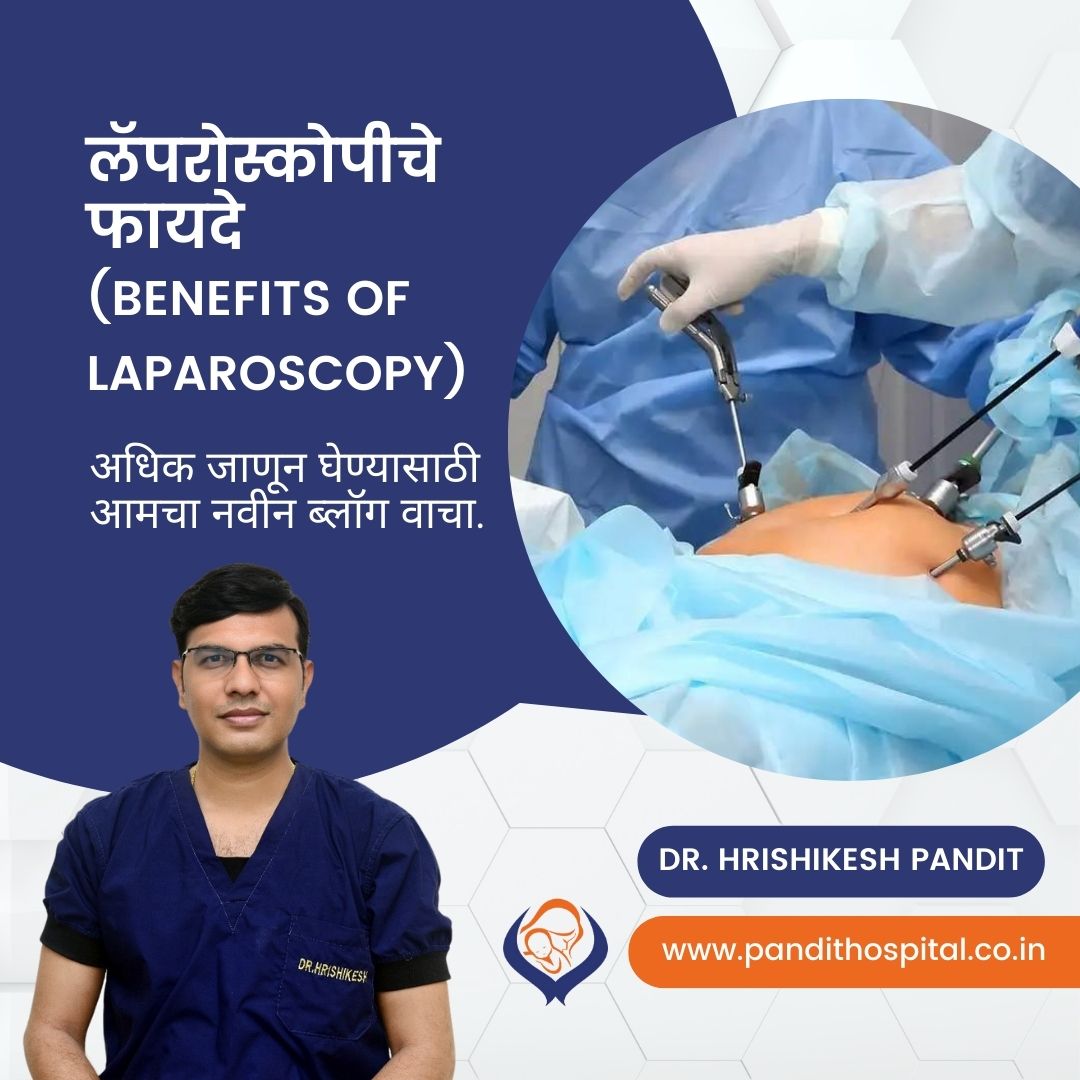Gynecologic cancer is one of the leading causes of cancer-related deaths in women India. On National Cancer Awareness Day, observed annually on November 7, lets understand the most common gynecologic cancers in India. In this blog we will explain gynecologic cancers types, treatment and other details.
What is gynecologic cancer?
Any cancers that begin in women’s reproductive organs are called gynecological cancers. Cancer arises when the body cells divide uncontrollably and start to damage and invade the surrounding body tissues.
Which is the most common gynecologic cancer in India?
Cervical cancer is the most common type of gynecologic cancer in India. Every year in India, 122,844 women are diagnosed with cervical cancer and 67,477 die from this disease. Cervical cancer affects the cells of the lining of the cervix, also known as mouth of uterus. Cervical cancer is a preventable disease, and regular Pap smears have long been used in developed countries to screen for cervical cancers, accounting for their low-incidence rates.
You can read more about it in our blog here.
What are the other common gynecologic cancer in India?
Ovarian cancer: Ovarian cancer grows when the cells in the ovary grow and multiply, eventually damaging the healthy ovarian tissue and invading the surrounding tissues. Ovarian cancer is the second most common gynecologic cancer. It is one of the deadly cancers in women as death rate is high with worst prognosis. Majority of the ovarian cancers present at advanced stage, and unfortunately, most of them are known to relapse after primary treatment which includes cytoreduction and chemotherapy.
Endometrial cancer (Uterine cancer): endometrial cancer (uterine cancer) is the abnormal growing of the uterine tissue. The buildup of cancer cells may form a mass (malignant tumor). Non-cancer cells that form a mass are termed benign tumors, like uterine fibroids and uterine polyps. Minimal access surgery including laparoscopic and robotic hysterectomies and lymphadenectomies are increasingly being used in surgical staging of endometrial cancers. At Pandit hospital we provide 3D Laparoscopic surgery technology for the best results.
Vaginal & Vulvar Cancer: These are rare gynecological cancers and often presented in older women at late stages.
What the symptoms of gynecologic cancer?
- Vaginal bleeding or spotting after menopause
- Pain in the lower abdomen that persists for more than two weeks
- Feeling of lump in lower abdomen
- Bleeding between periods
- Bleeding/spotting after sexual intercourse
- Unusual itching/discoloration/growth over external genitalia
If you are suffering from such symptoms, consult Dr. Hrishikesh Pandit for further assessment and treatment.
How to prevent gynecologic cancer?
Though it is not preventable but early detection can definitely help to get treated completely.
- Know your body: If you experience any anomaly for two weeks or longer, see a doctor.
- Take routine exams: Your doctor can identify precancerous changes in your cervix with the use of these exams. All females between the ages of 21 and 65 should have routine testing as directed by their doctors.
- Family history: Doctors may advise genetic testing and counselling if any family members have a history of ovarian cancer or any other gynecological malignancy.
- Healthy lifestyle choices: Leading an active, healthy lifestyle and maintaining a healthy weight will help lower your risk of developing some malignancies, such as ovarian and uterine cancer. A balanced diet, regular exercise, quitting smoking, and safe sex practice can all be beneficial.
What are the treatment options for gynecologic cancer?
Surgery: This entails surgically removing the cancerous tissue. The majority of gynecological malignancies frequently receive it as their initial treatment.
Chemotherapy: the procedure by which specific drugs are utilized to reduce and eradicate cancer. The medications can be taken orally or intravenously.
Radiation: Using high-energy rays (like X-rays) to eliminate the cancer inside the patient’s body is known as radiation therapy.
Which is the most common type of surgical treatment for gynecologic cancers?
Laparoscopic hysterectomy is the best option to choose as surgical intervention to treat gynecological cancers. Read more about it in our blog here.
Where is 3D laparoscopy surgery center in Ahmednagar?
At Pandit Hospital, Dr. Hrishikesh Pandit has introduced the technique of 3d Laparoscopy in Ahmednagar. 3D laparoscopy technique is much superior than regular 2D laparoscopy. The 3D HD view with depth perception and tactile feedback makes laparoscopic surgery more acceptable, safe and cost-effective. It improves surgical precision and hand–eye coordination, all leading to better outcome for patient.
What is the cost of laparoscopic hysterectomy in Ahmednagar?
The final cost of any surgery may vary with many factors associated the underlying causes. At Pandit Hospital, we provide laparoscopic hysterectomy at around Thirty Thousand Rupees.
Dr. Hrishikesh Pandit is the pioneer pf 3D laparoscopy technique in Ahmednagar. His experience and skill makes him one of the best laparoscopic surgeon in India.
At Pandit Hospital, you are in safe hands!
To consult Dr. Hrishikesh Pandit, Click Below,
Pandit Hospital – Best Maternity care center in Ahmednagar
LET’S SEE OUR INTRO VIDEO
At Pandit Hospital, we provide all the maternity services from antenatal to postnatal period under one roof
Let's Connect!!
Nagar - Pathardi Road, Bhingar, Ahmednagar, Maharashtra, India 414002
0241-2441717 / 0241-2442344
About author:
Dr. Hrishikesh Pandit:
Dr. Hrishikesh Pandit is one of the best obstetrician and gynecologist in India. He is also a well-renowned Laparoscopic surgeon. He obtained his MS (Ob Gyn) degree from the prestigious Pravara Institute of Medical Sciences. He has also done fellowship and diploma courses in laparoscopic surgeries and cancer treatment from Tata Hospital and Keil University, Germany. His surgical cases, papers and videos has been chosen in many international forums of gynecology.

Why Pandit Hospital?
At Pandit Hospital, we are always working hard to provide its patients with the highest level of medical innovation and patient care. With the aim of delivering complete maternity & gynecological care under one roof with the help of all contemporary amenities and cutting-edge medical equipment. Dr. Hrishikesh Pandit has a vision to bring the best of facilities regarding laparoscopy surgeries in the city of Ahmednagar. He is the pioneer of 3D Laparoscopy technology is Ahmednagar.
Latest Articles
Dr. Hrishikesh Pandit is one of the best laparoscopy surgeons in India. His determination to bring 3D Laparoscopy technology to Ahmednagar has eventually helped so many patients. Read the latest articles by Dr. Hrishikesh Pandit on Gynecology, gastric issues, and health tips for mothers during pregnancy.
Discover comprehensive ovarian cyst treatments at Pandit Hospital in Ahmednagar, Maharashtra, led by 3D Laparoscopic Surgeon Dr. Hrishikesh Pandit. Learn about types, symptoms, and both surgical and non-surgical treatments. Best ovarian cyst removal hospital in India.
गर्भाशयाच्या मुखाचा कर्करोग हा महिलांमध्ये होणारा दुसरा सर्वात गंभीर कॅन्सर आहे. वयाच्या 35 व्या वर्षानंतर या आजाराचा धोका फार वाढतो. गर्भाशयाच्या कर्करोगावर लॅपरोस्कोपी (दुर्बिणीने) शस्त्रक्रियेद्वारे उपचार केले जाऊ शकतात.
लॅपरोस्कोपिक शस्त्रक्रियेचे अनेक फायदे आहेत ✔ कमी वेदना ✔ कमी रक्तस्त्राव ✔ रुग्णालयात किमान मुक्काम ✔ जलद रिकव्हरी ✔ कमी कॉम्प्लिकेशन्स ✔ कमी टाके ✔अंतर्गत अवयवांना कमी इजा. Benefits of laparoscopy &Marathi)
FAQ
You should consult a doctor during the first 6 to 8 weeks of your pregnancy, or when your period is 2 to 4 weeks late.
If your contractions are 5 minutes apart, lasting for 1 minute, for 1 hour or longer, it’s time to head to the hospital.
Doctors recommend an infertility evaluation if you have not gotten pregnant after 1 year of having regular sexual intercourse without using birth control. If you are older than 35, an evaluation is recommended after 6 months of trying.
Yes, You can. But most babies need 39 weeks to develop fully. Induced or planned delivery before that time—without a valid medical reason—is not in the best interest of the baby or the mother. After 39 weeks you can plan delivery.
Women who are 21 to 29 should have a Pap test alone every 3 years. HPV testing alone can be considered for women who are 25 to 29, but Pap tests are preferred. Women who are 30 to 65 have three options for testing. They can have a Pap test and an HPV test (co-testing) every 5 years. They can have a Pap test alone every 3 years. Or they can have HPV testing alone every 5 years.
Laparoscopic hysterectomy is a safe and suitable procedure for chosen patients. It affords patients advantages like less peri-operative morbidity, better life quality, shorter hospitalization time, and faster return to activity.
Schedule a doctor’s visit if you have: Greenish, yellowish, thick or cheesy vaginal discharge; Strong vaginal odor; Redness, itching, burning or irritation of your vagina or the area of skin that surrounds the vagina and urethra (vulva); Bleeding or spotting unrelated to your period.
Painless delivery can be achieved using a form of regional anesthesia that provides pain relief during natural labor. Epidural anesthesia is administered through an injection on the lower back of the mother. The drug takes about 10-15 minutes to take effect.
Even in severe cases of endometriosis, most can be treated with laparoscopic surgery. In laparoscopic surgery, your surgeon inserts a slender viewing instrument (laparoscope) through a small incision near your navel and inserts instruments to remove endometrial tissue through another small incision.
The HPV vaccine is recommended for routine vaccination at the age of 11 or 12 years. (Vaccination can be started at age 9.) It is also recommended that vaccination for everyone through age 26 years if not adequately vaccinated when younger. HPV vaccination is given as a series of either two or three doses, depending on age at initial vaccination.

